The Three Republican Musketeers (at war)
- Published
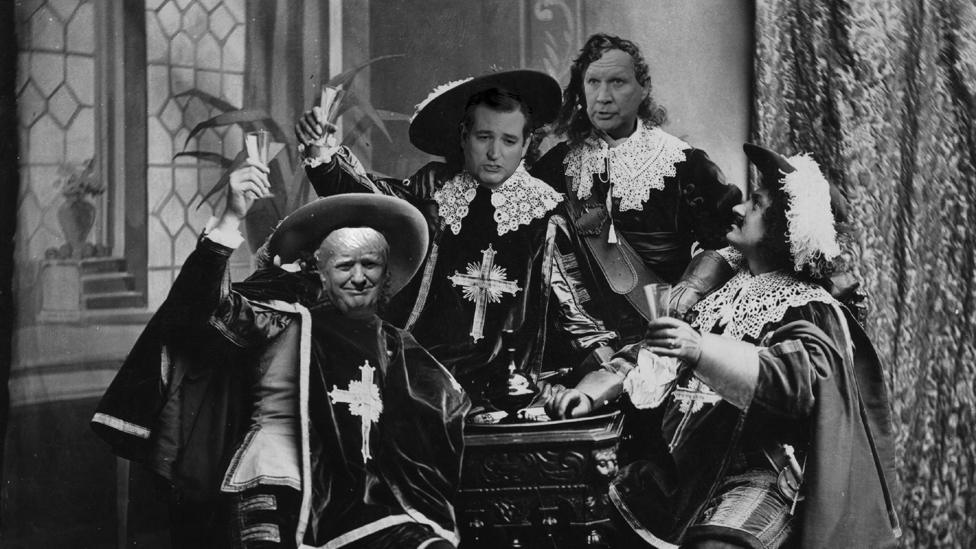
"All for one and one for all" - the famous refrain of Alexandre Dumas' Three Musketeers.
Well, let's forget the original characters, and instead substitute Trump - obviously as the hot headed, impetuous, fame-seeker d'Artagnan, as well as Cruz and Kasich.
And bring the plot into the 21st Century, and the extraordinary 2016 race for the White House. Because what we have here is the absolute reverse of "all for one".
This is the novel with "I'm for myself, and screw the other two" as its motto.
When the Republican race was getting under way, the grandees of the party knew there would be vigorous debate that would, at times, get a little rough. But a leading figure would emerge and he or she would be crowned the nominee at the convention in Cleveland in July.
The other losing candidates - though with feathers a little ruffled, and egos bruised - would summon their supporters and rally round the flag of the victor. With swords unsheathed and the barrels of their muskets loaded they would then rally their sullen armies of supporters for the fight of their lives against the Democratic Party enemy.
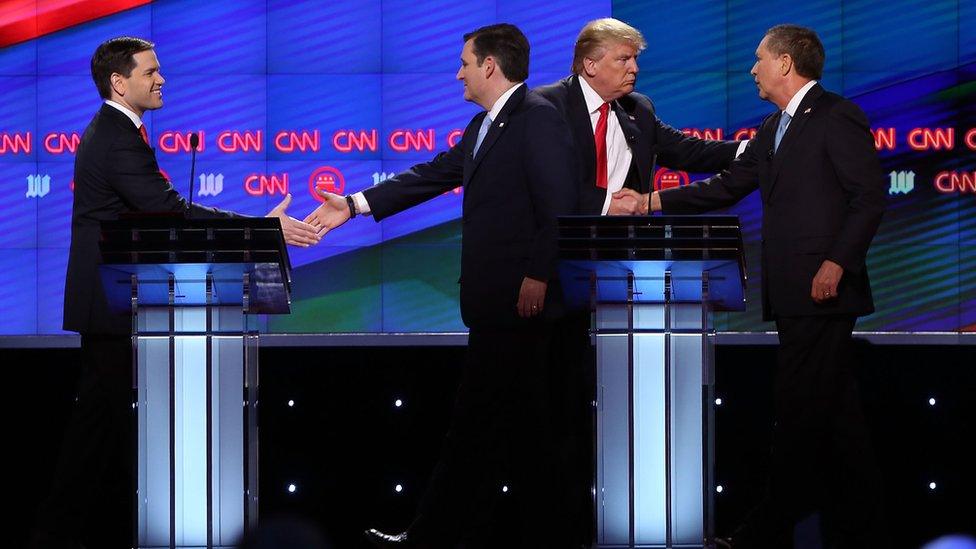
Happier times
This was the pledge signed by all the candidates last autumn.
"I [insert name] affirm that if I do not win the 2016 Republican nomination for president of the United States, I will endorse the 2016 Republican presidential nominee regardless of who it is. I further pledge that I will not see to run as an independent or write-in candidate nor will I seek or accept the nomination for president of any other party."
(Was this really just six months ago? It seems like a lifetime.)
Giving it greater emphasis, Trump told reporters after signing it that he saw "no circumstances under which I would tear up the pledge".
Where are failed Republican candidates now?
As recently as the beginning of this month, that unity looked as though it might hold firm. In a TV debate just after Super Tuesday, the remaining candidates were asked: Will you support the GOP nominee even if it's Trump?
Here are their replies:
Marco Rubio: I'll support the Republican nominee, even Trump, because the Democrats have two people left in the race. A socialist and a person who lies to the families of the victims of Benghazi.
Ted Cruz: Yes, because I gave my word that I would. I keep my word.
John Kasich: Sometimes he makes it a little bit hard but you know I'm going to support whoever is the nominee.
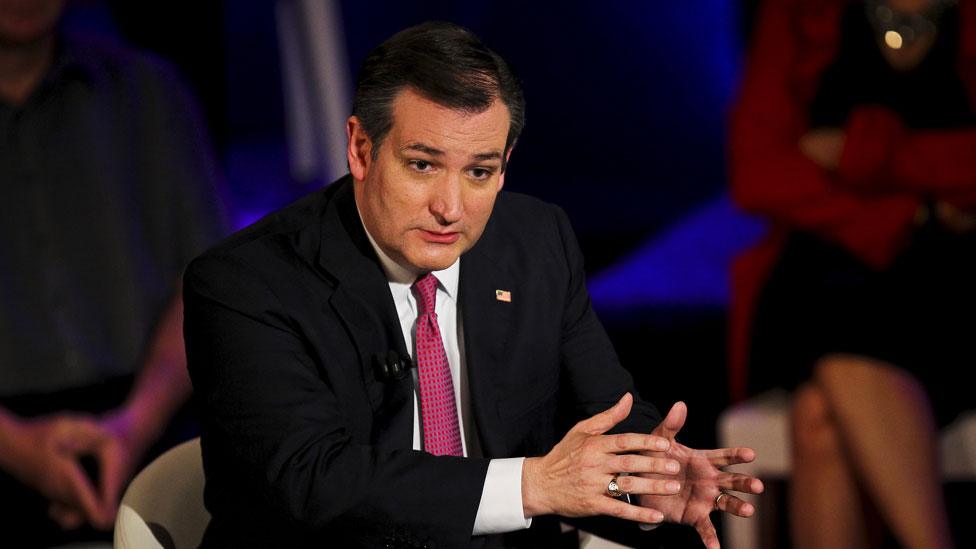
Ted Cruz won't say whether or not he'll support Donald Trump if he is the nominee
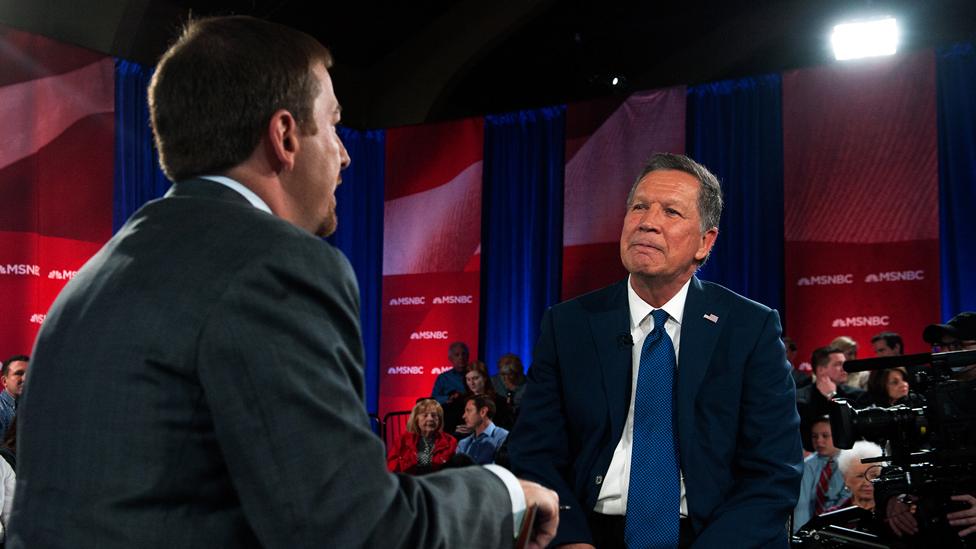
...nor will John Kasich
Donald Trump is then asked a similar question - would he support the nominee even if it's not him?
Donald Trump: Even if it's not me? Millions of millions of people have come to the Republican party... and Democrats are losing people. I'm very proud. The answer is yes I will.
"Pheeeewwww." You could hear the Republican high command breathe a sigh of relief.
But three weeks is a long time in Republican politics. Since then, we've had Marco Rubio suffer a mortal duelling wound in his battle with Trump in Florida, and fall by the wayside.
We've had the unseemly battle of the wives, and which was the ugliest. Frankly an industrial muck-spreader would have struggled to have thrown as much mud.
And we've had the campaign manager of Trump charged by the police with a minor assault after stopping a reporter from asking Mr Trump a question.
All of which brings us to last night's CNN town hall meeting in Wisconsin. And the same question got asked again. Will you support whoever emerges as the candidate?
Ted Cruz is asked the question three times, and is slippery. The closest he came to saying no was when he said: "I'm not in the habit of supporting someone who attacks my wife and attacks my family."
John Kasich also couldn't quite bring himself to answer the question directly, saying: "I don't want to be political here: I've got to see what happens."
But Donald Trump had no such qualms. When he was asked whether he felt a need to honour the pledge, his reply was brief, succinct and precise. "No, I don't anymore," he told the host, Anderson Cooper.
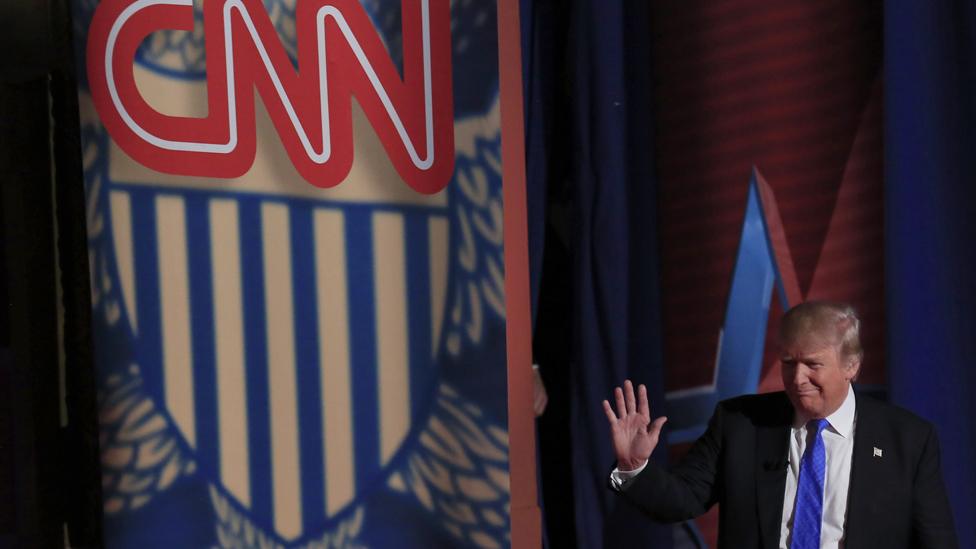
And there is a perfect vignette of why our d'Artagnan in this race is forging ahead and winning such support. People love that Trump says it straight (even if he contradicts previous statements).
None of the usual obfuscation or circumlocution. And for angry, disenchanted Americans he is the perfect tonic.
All of which sets the stage for a convention that could teeter out of control - and a script not written by the GOP's Cardinal Richelieu, but by the Democratic party.
A convention in which our swashbuckling swordsmen are swinging on chandeliers and shimmying down ropes to attack each other as a bloodbath ensues
While Hillary Clinton like some latter day Comtesse, in a powdered wig with a potpourri held to her nose peeps from behind her fan with a satisfied and none-too-enigmatic smile on her face
Or to jump forward a hundred or so years in our French history, to what Napoleon once said.
"Never interfere with an enemy while he's in the process of destroying himself."